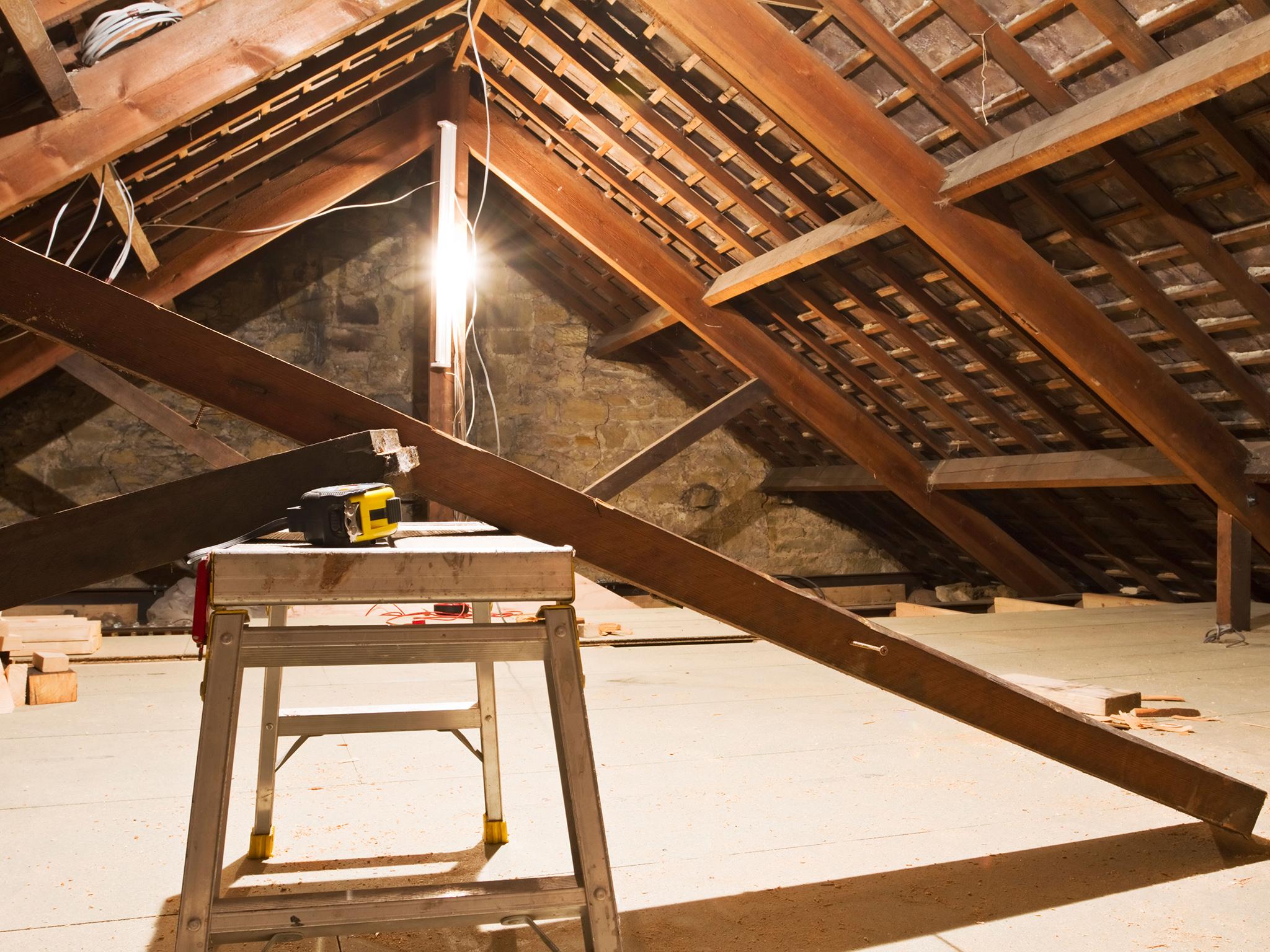UK homeowners are becoming improvers not movers
Would-be buyers put the brakes on borrowing as property market continues to falter

Your support helps us to tell the story
From reproductive rights to climate change to Big Tech, The Independent is on the ground when the story is developing. Whether it's investigating the financials of Elon Musk's pro-Trump PAC or producing our latest documentary, 'The A Word', which shines a light on the American women fighting for reproductive rights, we know how important it is to parse out the facts from the messaging.
At such a critical moment in US history, we need reporters on the ground. Your donation allows us to keep sending journalists to speak to both sides of the story.
The Independent is trusted by Americans across the entire political spectrum. And unlike many other quality news outlets, we choose not to lock Americans out of our reporting and analysis with paywalls. We believe quality journalism should be available to everyone, paid for by those who can afford it.
Your support makes all the difference.Homebuyers are curbing their desire to move up the notorious property ladder in the face of unrelenting economic and political no man’s land, the latest figures from the banking world show.
Despite the ultra-low cost of borrowing and steady, if not falling, property prices across the country, homeowners are staying put in increasing numbers, according to the latest raft of telling house price and mortgage figures out this week.
As official data from HM Land Registry reveals the latest trends on property prices in England and Wales show an average increase of less than 1 per cent in the last year (making the average property now worth just under £230,300) separate figures suggests the number of people applying for money to fund their next purchase is dropping.
Even first-time buyers aren’t completing their first purchase as enthusiastically as they once were, down 1.5 per cent in June 2019 compared with the same month last year, according to Finance UK – the trade body that represents the banking and finance industry.
Home mover mortgages are down 3.6 per cent, including a huge drop in the number of pound-for-pound remortgages, down by almost 24 per cent compared with June 2018.
“Even accounting for a seasonal lull, mortgage lending in June was down across nearly all buyer-types including first-time buyers, home-movers and buy-to-let landlords, year-on-year for June,” says Daniel Hegarty, CEO and founder of online mortgage broker and lender Habito.
“Flat property prices don’t seem enough to tempt people to look in estate agents’ windows. Stamp duty is a hefty charge on top of the purchase price, plus other extras such as estate agent fees and conveyancing fees make the average cost of just moving home around £11,000.
“In this climate, it’s no wonder that many people are opting to remortgage to release the money to extend or improve their home instead,” he adds.
“It’s really no surprise given the current political and economic uncertainty that the only area of growth in lending is from homeowners remortgaging for additional borrowing as homeowners look to hunker down, get their finances in order and improve, not move.”
And improving they are, with the only increase in mortgage lending coming from those keen to borrow more against their homes to fund improvements – up by more than 8 per cent year-on-year.
One study by TSB shows two in five homeowners would now prefer to renovate their home than move, particularly in light of new changes in planning restrictions.
In May this year, thousands of homeowners were given the green light to extend their properties without planning permission, meaning that homeowners are now able to improve and add value to their existing home through rear extensions.
As a result of this change in the law, one in five homeowners are now more likely to build a rear extension in the next three years, according to TSB, with half of those saying moving is too expensive, or they are emotionally attached to their current home.
“It’s no surprise that homeowners cite the cost of moving as one of the biggest barriers to affording a new home or moving up the property ladder. Building an extension is a great way to add extra space without having to undertake the additional costs such as stamp duty and legal fees,” says Nick Smith, TSB’s head of mortgages.
“Where space is at a premium quite simply adding floor area adds value. However, good design, layout and functionality of homes is increasingly important. Home buyers want the space but tasteful extensions and modern open-plan living areas offered by extensions are value generating,“ adds James Ginley, technical director for Legal & General Surveying Services.
The key problem, as ever, is that with Brits spending £83bn on upgrading their home each year, we don’t have the ready money to pay for such improvements.
Research from Zopa suggests the average adult parts with more than £3,000 every year – on everything from huge extensions to updating furniture and carpets.
A third of us will remortgage those properties to cover the costs, rising to more than half of the under 34s, says TSB, which also found that 80 per cent of us expect relaxed laws on extensions will also heighten neighbourhood disputes.
Join our commenting forum
Join thought-provoking conversations, follow other Independent readers and see their replies
Comments